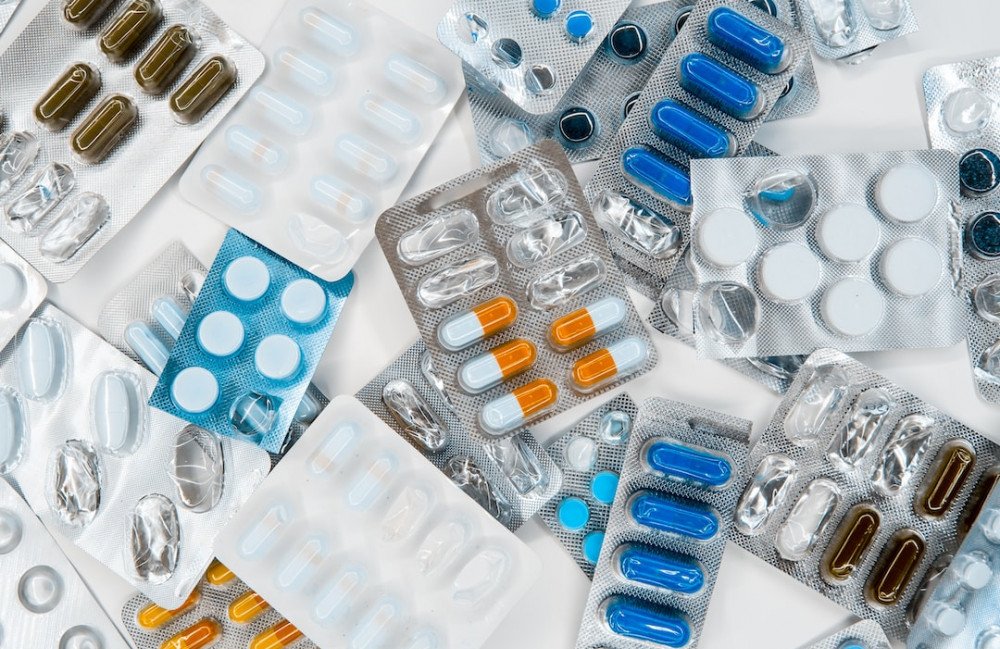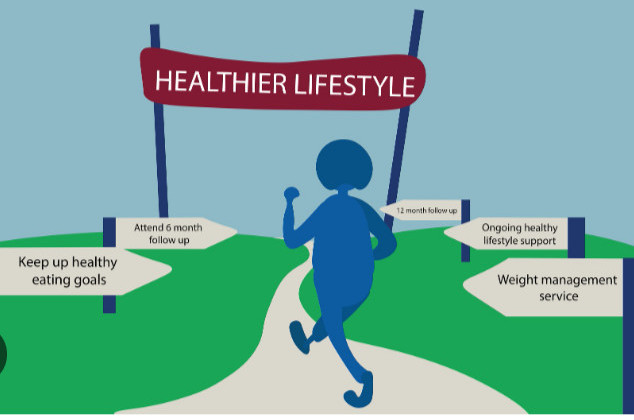Are There Side Effects to Fat Burners – Weigh the Pros and Cons

In our relentless quest for perfect fitness and a lean physique, fat burners have emerged as popular aides for weight loss. Known for their potential to boost metabolism, increase fat oxidation, and reduce appetite, these supplements are often hailed as magic pills by the diet industry.
However, as the old adage goes, “not everything that glitters is gold.” The charm of quick and seemingly effortless weight loss is enticing, but it comes with a hidden cost: side effects that impact your health.
What are Fat Burners?
Dietary supplements known as “fat burners” are taken by people who want to speed up their metabolism and shed extra pounds more quickly. Common ingredients include stimulants and botanicals that work together to speed up the body’s fat-burning processes. These stimulants also elevate the metabolic rate and decrease hunger and block fat absorption, respectively.
Cardiovascular Issues
Caffeine, green tea extract, and synephrine are just some of the high-octane substances commonly included in fat burners. They have a significant impact on the cardiovascular system. Rapid increases in heart rate and blood pressure are possible after taking these stimulants. They increase the strain on the cardiovascular system. Arrhythmias (irregular heartbeats) and more serious illnesses like heart disease and stroke are just some of the outcomes of this prolonged stress on the cardiovascular system.
The link between dietary supplements and cardiac issues has been confirmed by numerous investigations. Nutritional supplements, including fat burners, have been linked to an increased risk of cardiovascular problems, especially in young individuals. According to a study published in the Journal of the American College of Cardiology,fatburners are extremely dangerous.
The study’s found that these negative effects were common even among those typically thought to be at low-risk for heart disease due to age emphasized the need for vigilance.
Sleep Disturbances
Fat burners commonly contain stimulants, are known to interfere with the body’s natural sleep cycle. This disruption leads to various sleep disorders. They cause insomnia, sleep apnea, and frequent waking. For many, a restful night’s sleep becomes a distant memory. In its place is restlessness and fatigue. The detrimental effects of poor sleep extend beyond tiredness. It affects cognitive function, mood, and overall health.
One study published in the journal Sleep Medicine found that a high intake of caffeine was associated with an increased incidence of insomnia and other sleep disorders. Caffeine is found in many fat burners. Regularly consuming high amounts of caffeine interferes with the body’s internal clock. So, avoid it late in the day of you want a good night’s sleep.
Gastrointestinal Problems
There are challenges beyond hunger on the road to weight loss. Yohimbine and conjugated linoleic acid (CLA) are two examples of fat burner substances that have the ability to wreak havoc on the digestive system. They cause stomach discomfort, constipation, diarrhea, and nausea. 
A study published in the European Journal of Clinical Nutrition found that Yohimbine and CLA increases the risk of gastrointestinal adverse effects. The participants in the study who used the supplements complained of intense pain that persisted long after they stopped using them.
The bottom line when using fat burners or other dietary supplements for weight lose, please be cautious.
Changes in Behavior
High doses of caffeine or other stimulants in fat burners are linked to a variety of adverse condions. In fact, they are known to cause anxiety, agitation, impatience, and mood changes. They impair a person’s ability to go about their everyday lives and reduce their quality of life.
According to research published in the Journal of Clinical Psychiatry anxiety, sadness, and stress symptoms worsen with increased caffeine consumption. There is a clear correlation between stimulant usage and mental health problems. People who consume excessive amounts of caffeine are more likely to experience these negative effects.
Liver Damage
Although fat burners hasten the process of reducing body fat, they also cause damage to the liver and other internal organs. Hepatic damage has been linked to the use of fat burners for extended periods of time or in excessive doses.
The CDC published a paper regarding the use of nutritional supplements, particularly fat burners. Users in these instances developed serious liver damage. Moreover, some patients needed liver transplants. These disturbing incidents highlight the dangers that arise with the usage of fat burners and other related supplements.
Kidney and Renal Problems
Kidney damage and other renal problems are another major risk while using fat burners. Any supplement or drug that changes the body’s metabolic rate has an effect on the kidneys. The kidneys and the liver play an important part in detoxifying the body.
Stimulants and diuretics, two common chemicals in fat burners, place a burden on your kidneys. Increased metabolic rate and blood flow from stimulants has been linked to strain on the kidneys. Diuretics, on the other hand, alter the body’s fluid balance, leading to dehydration and, in extreme circumstances, kidney stones and failure.
Certain dietary supplements, such as those typically contained in fat burners, have been linked to an increased risk of kidney damage, according to the Journal of Clinical Pharmacology study. Individuals with preexisting renal problems are especially vulnerable to this type of injury.
The risk is much higher because many people don’t realize they have underlying kidney problems. The Kidney Foundation of Canada estimates that up to two million Canadians are living with renal disease or are at risk for developing it.

Due to these concerns, anyone thinking about using fat burners or similar supplements should proceed with caution. However, it is always best to consukt with your doctor first.
Fat burners may seem like a good idea while you’re trying to lose weight. In a culture where quick fixes and instant gratification are the norm, the promise of rapid fat loss, greater energy, and decreased appetite is hard to refuse. One must, however, wonder, “At what cost?”
The Temptation of Instant Results
Fat burners are popular since they claim to be effective in a short amount of time. Most of us have busy lives, so the concept of a drug that help us save time, get things done faster, and see benefits right away sounds too good to be true. However, just like any other product that seems too good to be true, fat burners have their own set of dangers and adverse effects.
Dose-Dependent Risks
It’s also important to remember that the intensity of many of these adverse effects depends on the quantity or frequency with which the fat burner is consumed. This factor emphasizes the significance of knowing the risks and taking precautions.
Doctors Have the Best Advice
Due to these concerns, it is wise to talk to a doctor before beginning a new supplement program. This is especially true for fat burners. In order to determine if the product is appropriate for your needs, health, and lifestyle, your healthcare practitioner will give you information about the product’s potential risks and benefits.
The Long-Term Strategy for Weight Loss
Although fat burners provide a quick and easy way to lose weight, it is important to keep in mind the true basics of weight management. Maintaining a healthy diet and frequent exercise is key. Both of these aid in slimming down and improve general health and wellness.
A well-rounded diet provides your body with all the essential elements it requires. When combined with exercise this strategy leads to long-term weight loss, better cardiovascular health, enhanced mental well-being, and increased longevity.
In addition, a sensible approach to weight loss includes modifying your lifestyle, getting more sleep, dealing with stress, and drinking more water. Although these strategies are not as fast acting as fat burners, they do have lasting effects and are far safer. 
Final Thoughts
When it comes to losing weight and getting in shape, when every pound counts, fat burners are tempting. The potential adverse effects, however, serve as a sobering reminder that there are no fast cuts to good health. The greatest strategy to lose weight is the tried-and-true method of incorporating healthy eating, frequent exercise, and other lifestyle changes into your daily routine. Your health is a long-term investment, not a sprint.
Fat Burners
Rachele, Founder
rachele@mybluegenes.com






Hi Rachele –
Ads about weight loss are commonplace on radio, tv, and social media. Since most Americans are overweight or obese, some people choose diets, while some opt for the gym. Fat burners are a straightforward choice for certain people.
Though, as you noted, fat burners contain high-octane substances which can have a negative impact on your cardiovascular system. I certainly do not want to increase my blood pressure or heart rate exchange for losing weight. It is a bad trade off in my opinion.
I have never been interested in fat burners, supplements, and the like because the FDA does not approve them.
Appreciate your insight into this topic.
Hi there Godwin,
Thank you for taking time out of your busy schedule to read and comment on my article related to fat burners. Many people who are anxious to lose weight oftentimes get frustrated and opt for a quick weight loss fix. I was even considering them myself at one point. Instead of going that route, I chose to transition to a healthier lifestyle. That said, I have maintained my weight loss for almost three years now and I did not have to succumb to fat burners. Most of these types of supplements are not FDA approved and therefore could have a negative effect on one’s health.
Enjoy your weekend,
Rachele